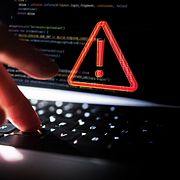Bakgrund: Online Safety Act
Wikipedia (en)
The Online Safety Act 2023 (c. 50) is an Act of the Parliament of the United Kingdom to regulate online content. It was passed on 26 October 2023 and gives the relevant Secretary of State the power to designate, suppress, and record a wide range of online content that is deemed "illegal" or "harmful to children".
The Act creates a new duty of care for online platforms, requiring them to take action against illegal content, or legal content that could be "harmful" to children where children are likely to access it. Platforms failing this duty would be liable to fines of up to £18 million or 10% of their annual turnover, whichever is higher. It also empowers Ofcom to block access to particular websites. However, it obliges large social media platforms not to remove, and to preserve access to, journalistic or "democratically important" content such as user comments on political parties and issues.
The Act also requires platforms, including end-to-end encrypted messengers, to scan for child pornography, despite warnings from experts that it is not possible to implement such a scanning mechanism without undermining users' privacy. Similar to some EU countries that does similar known as Chat Control, but the proposal have been failed in 2022, 2023 and 2024. The government has said that it does not intend to enforce this provision of the Act until it becomes "technically feasible" to do so. The Act also obliges technology platforms to introduce systems that will allow users to better filter out the "harmful" content they do not want to see.
The Act hands sweeping and controversial powers to the relevant secretary of state, allowing them to intervene directly with Ofcom's operations, including the authority to dictate the content of its "codes of practice". Critics argue this represents a centralisation of power that compromises Ofcom's independence and opens the door to government control over online speech. These powers, which can be exercised with minimal oversight and under vague emergency justifications, have been condemned as authoritarian and dystopian in nature. The legislation has drawn criticism both within the UK and overseas from politicians, academics, journalists and human rights organisations, who warn that it poses a threat to the right to privacy and freedom of speech and expression.




